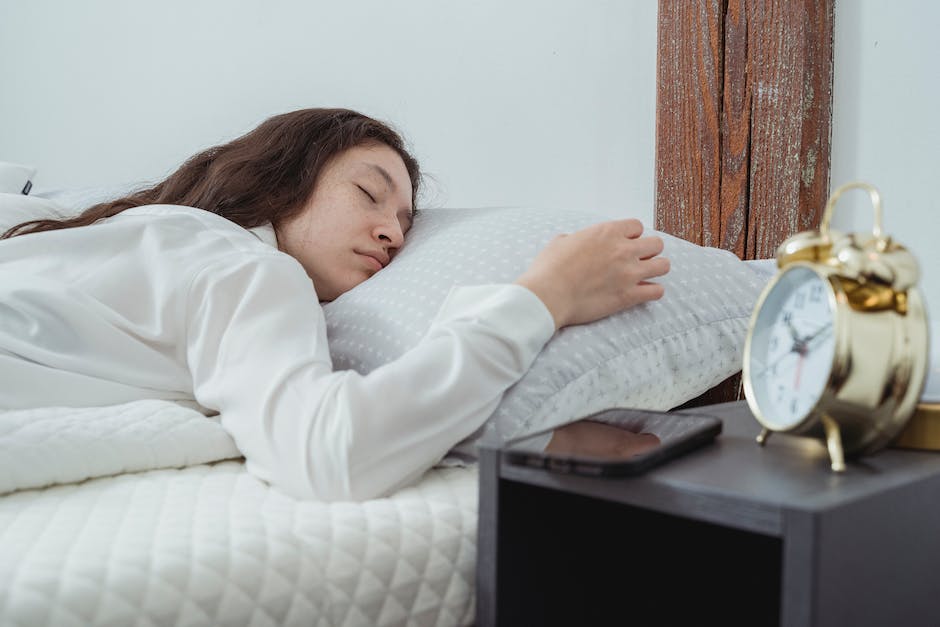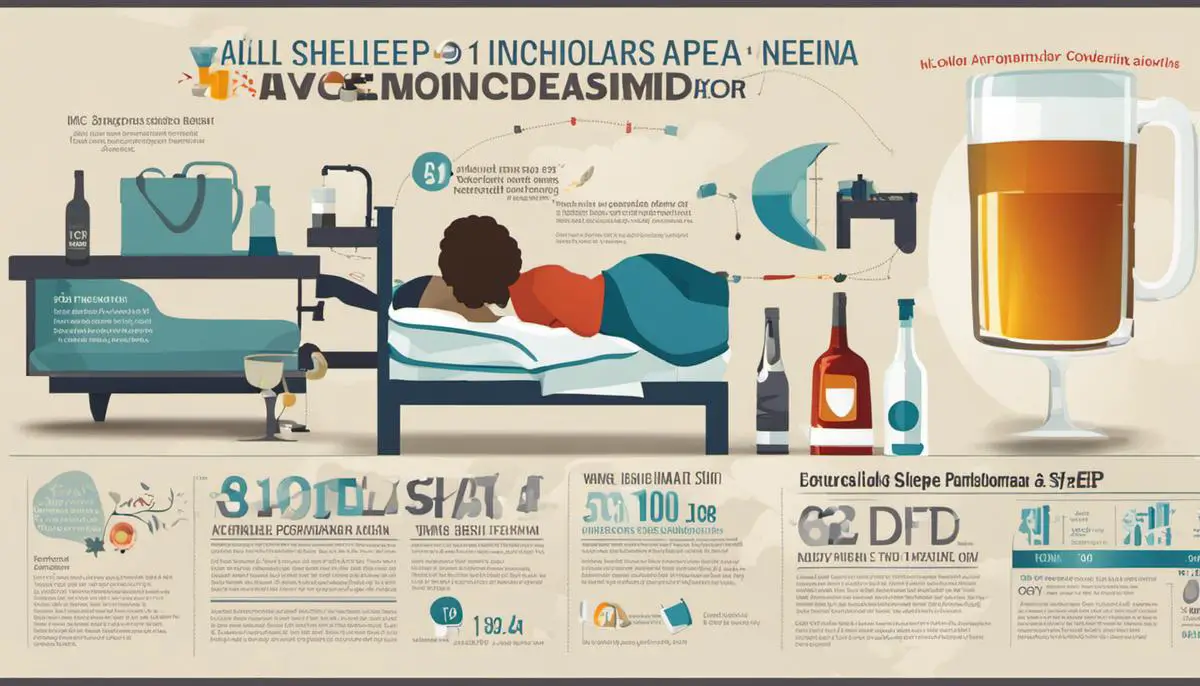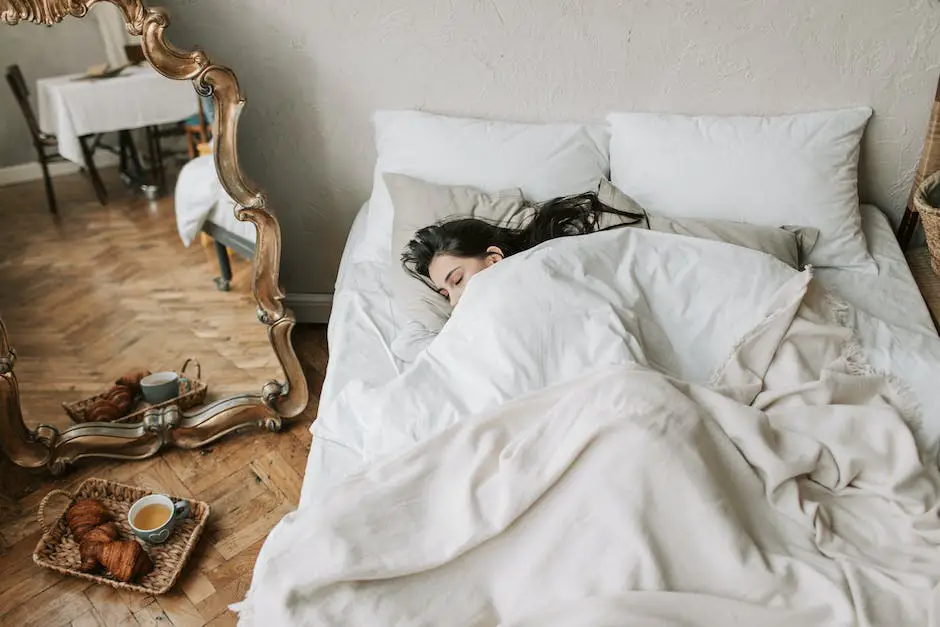High-quality, consistent sleep is as essential to our well-being as proper nutrition and regular exercise. However, despite its importance, many of us unknowingly jeopardize this precious commodity through our consumption of alcohol, a prevalent substance in our society that greatly affects our sleep cycle. Alcohol significantly influences our bodies, and despite the prevailing belief that it aids sleep, it often disturbs it, leading to various forms of sleep disorders and complications. This piece explores the science behind the sleep cycle, the path alcohol takes through our bodies, and the subsequent effects and disorders it leads to. By understanding this interplay, we can take steps toward better sleep hygiene and overall health.
Understanding Sleep Basics
Understanding Sleep Basics: Importance and Function
Sleep serves numerous restorative functions vital to our physical health and cognitive performance. During sleep, the body recovers and repairs tissues, muscles and the immune, nervous and skeletal systems. It’s also involved in cognition and learning, with ongoing sleep helping us process and retain new information.
Non-REM and REM Sleep
Non-REM sleep is further divided into stages 1, 2, and 3. In Stage 1, you transit from wakefulness into sleep. Stage 2 is a period of light sleep before you enter deeper sleep. Stage 3 is the final stage of non-REM sleep and is the period of deep sleep that you need to feel refreshed in the morning. It occurs in longer periods during the first half of the night.
REM sleep occurs about 90 minutes after falling asleep, and this is the stage when you dream. Your eyes move rapidly from side to side behind closed eyelids, hence the name. As the sleep cycle proceeds, REM sleep periods increase in length while deep sleep decreases.
These sleep cycles are important for memory consolidation, learning, mood regulation, and other cognitive functions. Disruptions in these cycles can impair cognitive performance, mood, and overall health.
The Impact of Alcohol on Sleep
Alcohol might seem like a useful tool for encouraging sleep due to its immediate tranquilizing effects, which might hasten sleep onset. However, it effectively disturbs the quality of sleep and hampers its restorative effects. Specifically, it disrupts the harmony and balance of Rapid Eye Movement (REM) and Non-Rapid Eye Movement (non-REM) sleep cycles.
Consuming alcohol can engender a disequilibrium by initially suppressing REM sleep, which results in an increase in non-REM sleep. As the night unfolds and the impacts of alcohol fade, a “rebound effect” oftentimes ensues characterized by an uptick in REM sleep and wakefulness. This typically culminates in unsettled and unsatisfying sleep.
Regular ingestion of alcohol can precipitate insomnia and other sleep disorders, cultivate an unhealthy reliance on alcohol for sleep onset, and enhance the severity of snoring along with other sleep-related breathing complications.
Alcohol can exacerbate symptoms associated with disorders like sleep apnea due to its muscle-relaxing properties, which can disrupt normal breathing patterns during sleep and result in sleep fragmentation and reduced blood oxygen levels.
Given the vital role of sleep in maintaining overall health and well-being, it’s instrumental to understand how alcohol can perturb this critical physiological function, underscoring the importance of moderation and responsibility when engaging in alcohol consumption.

Alcohol and Its Effects on the Body
Comprehending Alcohol Consumption and Its Consequences on the Body
When consumed with restraint, alcohol intake can provide some health benefits. However, overindulgence can precipitate a cascade of health issues. Initially, acute effects – such as diminished motor coordination, blurry vision, and impaired decision-making – can be immediately experienced post-consumption. Persistent excessive drinking can lead to a host of long-term health problems, including liver disease, cardiovascular complications, and neurological harm.
An integral component of understanding the influence of alcohol is having a clear concept of how it’s metabolized in the body. Once consumed, alcohol is absorbed into the bloodstream via the stomach and small intestine. The lion’s share of the consumed alcohol is metabolized in the liver, while the remaining is expelled through urine, sweat, and breath.
The absorption and metabolic rate of alcohol can greatly vary across individuals. This is contingent on a range of factors, including but not limited to weight, gender, age, amount of alcohol consumed, and whether food is present in the stomach.
Alcohol and Sleep Disruption
One of the significant effects of heavy alcohol consumption is sleep disruption. While alcohol can initially act as a sedative, promoting a sense of drowsiness, the quality of the sleep experienced is usually poor.
Within a few hours of alcohol consumption, as the body starts to metabolize alcohol, it interferes with the normal sleep pattern. Drinking before bed is linked with an increase in alpha wave patterns in the brain – a kind of cerebral activity that occurs when you’re awake but resting. The result is a disruption in the restorative stages of sleep, primarily rapid eye movement (REM) sleep.
Moreover, alcohol can exacerbate sleep disruptions in those with preexisting sleep issues, like insomnia or sleep apnea. It relaxes the muscles in your body, which can cause interruptions in breathing known as apneas in people prone to this condition or worsen it in people who already have it.
Exploring the Immediate and Prolonged Impact of Alcohol on Sleep
In the short run, it’s a popular belief that consuming alcohol makes falling asleep easier. There’s some truth in it as the initial sedative effects of alcohol can indeed fast-track sleep onset. However, it’s worth noting that this sedative effect begins fading as the night wears on, ultimately leading to a decline in sleep quality and duration.
With prolonged, heavy consumption of alcohol, these initial problems can snowball into persistent disruptions in sleep, even for individuals with no prior sleep disorders. The habit of consuming alcohol regularly before heading to bed can program the body to depend on its sedative effects for sleep, potentially leading to a vicious cycle of addiction and withdrawal.
The persistent interference with normal sleep patterns caused by alcohol consumption can manifest as perpetual tiredness or difficulty concentrating while potentially paving the way for more pressing health issues, such as anxiety and depression. Further, it can meddle with the REM (Rapid Eye Movement) sleep phase, crucial for memory and concentration, thus potentially contributing to cognitive degeneration or memory problems in the long run.

Photo by emilianovittoriosi on Unsplash
Alcohol and Its Impact on Sleep
Understanding the Role of Alcohol in Disrupting Sleep
Alcohol, being a depressant, often creates the illusion of being a sleep inducer. Upon consumption, it may indeed make you feel sleepy and expedite sleep onset. However, it’s essential to realize that this change is temporary and usually followed by a disturbance in the regular sleep cycle, significantly impacting the stages and process of a sound sleep cycle.
A healthy sleep cycle involves specific stages such as light sleep, deep sleep, and Rapid Eye Movement (REM) sleep. The REM sleep phase is particularly crucial as it’s the phase associated with dreaming and important mental processes like memory consolidation and learning. Ensuring a good night’s sleep involves these stages occurring in an orderly, cyclic sequence.
How Alcohol Affects REM Sleep
Ingestion of alcohol has a profound effect on your REM sleep. The initial soporific effect of alcohol often cut short the early REM sleep stages. While you might fall into a deep sleep faster than usual after alcohol consumption, as the body metabolizes the alcohol and the effects wear off, it disrupts the REM stage, which often leads to a lighter and more fragmented sleep during the second part of the night.
Sleep fragmentation is the fractured, disrupted sleep experience that leaves people feeling unrefreshed despite spending an average time in bed. This aftermath of drinking often includes frequent awakenings, restlessness, active dreams, nightmares, and, in some cases, sleepwalking.
Misconception About Alcohol and Sleep
One common misconception about alcohol and sleep is that alcohol aids in sleep. Alcohol does seem to hasten sleep onset, which might encourage people struggling with insomnia to turn to drinking as a sleep aid. However, despite this initial sleep induction, the subsequent rest is typically restless and fragmented. This sleep disruption outweighs any perceived short-term benefits from faster sleep onset.
Moreover, regular use of alcohol as a sleep aid can lead to an increased tolerance towards its sedative effects. This adaptive response from your body may then require larger amounts of alcohol for the same sleep-inducing effect, paving a potential path toward alcohol misuse or dependency.
Alcohol’s Impact on Sleep Patterns
For many people, it may seem that consuming alcohol can assist with sleep – a quick solution to unwind or relax. However, the reality is that alcohol disrupts the natural sleep cycle and can be quite harmful, especially for heavy or chronic drinkers. Notably, alcohol has a relaxing effect on the throat’s muscles, potentially causing collapse of the airway. This disruption can result in breathing interruptions during sleep, a condition known as sleep apnea. It can also induce snoring.
From interfering with REM sleep to causing fragmented sleep and fostering potential sleep disorders, the overall impact of alcohol on sleep patterns is generally detrimental and potentially harmful.

Alcohol-Induced Sleep Disorders
Familiarizing with Alcohol-Related Sleep Disorders
Instead of providing restful sleep, excessive consumption of alcohol can lead to various sleep disorders. These disorders, which include insomnia, sleep apnea, and parasomnias, happen due to disturbances in both the quality and quantity of sleep. Alcohol-based sleep disruptions negatively affect one’s overall health and quality of life, reinforcing the fact that alcohol, while used as a relaxation aid, has the propensity to severely hinder proper sleep.
Link Between Alcohol and Insomnia
Insomnia, characterized by difficulty falling asleep or staying asleep, has been frequently linked to the consumption of alcohol. Initially, alcohol may induce sleepiness due to its sedative effects. However, as the body metabolizes alcohol, it interrupts sleep patterns leading to disrupted sleep and insomnia. Alcohol suppresses rapid eye movement (REM) sleep, a critical sleep phase associated with dreaming and memory. This suppression results in fragmented sleep and increased wakefulness.
Alcohol and Sleep Apnea
Sleep apnea, a disorder characterized by pauses in breathing or periods of shallow breathing during sleep, can be aggravated by alcohol consumption. Alcohol relaxes the throat muscles, which can lead to snoring or obstructive sleep apnea. More so, alcohol disturbs the normal sleep-wake cycle, exacerbating symptoms of sleep apnea, such as daytime sleepiness and difficulty concentrating. Over time, untreated sleep apnea can lead to serious health problems including heart disease, obesity, and stroke.
The Issue of Alcohol-Induced Parasomnias
Parasomnias refer to abnormal behaviors that occur in different sleep stages, such as sleepwalking, night terrors, or sleep-related eating disorder. Consuming alcohol disrupts the normal pattern of sleep cycles, increasing the likelihood of parasomnias. For instance, individuals who consume alcohol before sleep may find themselves sleepwalking or engaging in other activities they have no recollection of upon waking.
The Impact on Health and Quality of Life
Chronic sleep disruption from regular alcohol consumption has significant impacts on health and quality of life. Lack of quality sleep can lead to numerous physical issues such as weakened immune response, higher susceptibility to illnesses, increased risk of obesity, and cardiovascular problems. It also has profound cognitive and emotional impacts, increasing the risk of mental health disorders like depression and anxiety, and resulting in decreased memory and learning capabilities.
Managing Alcohol-Induced Sleep Disorders
Management of alcohol-induced sleep disorders often involves decreasing or eliminating alcohol intake, especially before sleep, paired with cognitive-behavioral therapy for insomnia (CBT-I), a proven-effective treatment that addresses the underlying causes of sleep disruption. Sleep apnea may be managed with positive airway pressure (PAP) therapy, and parasomnias can be reduced or eliminated by managing triggers, such as alcohol intake.
A better understanding of how regular alcohol consumption disrupts sleep patterns is integral to promoting healthy lifestyle choices. Being fully aware of alcohol’s impact on sleep quality and duration can not only help guide responsible drinking behaviors but can also signal when it might be necessary to seek professional help for sleep-related disorders.

Tips for Healthy Sleep Hygiene
Decoding Alcohol’s Impact on Sleep
Despite common belief that alcohol aids sleep, the reality reveals a more disruptive influence. While the initial effects of alcohol might lull you into a state of drowsiness, it alters the normal sleep rhythm further into the night, leading to fragmented and poor-quality sleep. In particular, alcohol impedes Rapid Eye Movement (REM) sleep – the stage responsible for daily cognitive rejuvenation – so the end result is often daytime fatigue and an inability to concentrate effectively.
Modifying Lifestyle to Minimize Alcohol-Induced Sleep Disruptions
Lifestyle modifications can play a pivotal role in reducing alcohol-induced sleep disruptions. Foremost, reducing the intake of alcohol, particularly before bedtime, can significantly improve sleep quality. It’s recommended to avoid consuming alcohol at least three hours before bedtime. Regular physical exercise, maintaining a balanced diet, and practicing relaxation techniques like meditation can also enhance the overall quality of sleep.
Significance of Routine
Maintaining a regular sleep-wake schedule is essential for good sleep hygiene. The consistency of routine reinforces the body’s sleep-wake cycle and helps promote better sleep. Avoiding naps, particularly in the afternoon, can foster better sleep at night.
Creating an Ideal Sleep Environment
Setting up an ideal sleep environment plays a key role in promoting sound sleep. This involves keeping the bedroom dark, quiet, cool, and comfortable. Devices with screens that emit blue light such as televisions, laptops, and mobile phones should be turned off or kept away from the bed as they interfere with the body’s ability to fall asleep.
Importance of Professional Help
In cases where alcohol consumption is causing chronic sleep disturbances or signs of dependency, it’s crucial to seek professional help. Sleep specialists and addiction counselors can design a tailored plan combining therapy, medication, and lifestyle changes to cope with the alcohol-induced sleep disruptions. It’s important to remember that help is available and it’s essential to reach out when needed.
Support System and Maintenance
The value of a solid support system cannot be overstated. Family, friends, and support groups can offer tremendous help during the path towards recovery from alcohol dependency. Following the professional help, it is crucial to maintain the healthier practices and lifestyle modifications for sustainable results.
Outlook on Alcohol and Sleep
Alcohol initially might create an illusion of better sleep due to its sedative effect. However, the relationship between alcohol and sleep is complex and often leads to disrupted sleep cycles. Regular and heavy intake of alcohol causes severe damage to the overall sleeping pattern leading to multiple health issues. Balancing with good sleep hygiene, alcohol-free days, and professional help when needed can protect sleep health and enhance the overall quality of life.

Chronic alcohol consumption is far from a harmless practice. Its effects weave an intricate web, intertwining with various aspects of our health and causing detrimental changes along its path. The disruption of natural sleep patterns is one such change. This effect not only impedes our nightly rest but also sparks disorders like insomnia, sleep apnea, and parasomnias. For those seeking to improve their health, understanding these implications is essential. To mitigate the harmful effects of alcohol-induced sleep disruption, a reevaluation of lifestyle habits and the adoption of healthier sleep hygiene principles are recommended. If you find yourself struggling or require further assistance, don’t hesitate to seek professional help. Sleep is too valuable a treasure to let it be disturbed by alcohol.
